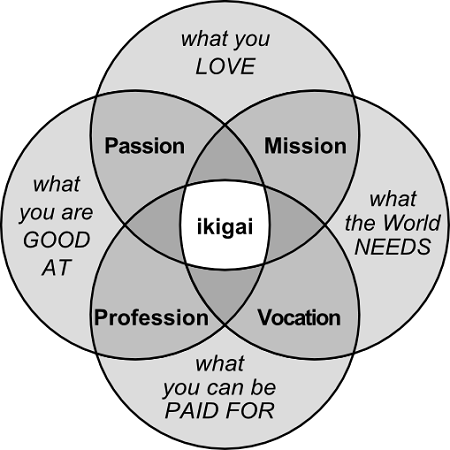Adele’s 2011 song “Rumour Has It” sold more than 2.7 million copies worldwide.
It took her only ~10 minutes to record.
Producer Ryan Tedder (also the lead singer of OneRepublic) described how incredible this was:
“She sang it once top to bottom, pitch perfect, she didn’t miss a note. I looked at the engineer then at her and said, ‘Adele I don’t know what to tell you but I have never had anyone do that in 10 years.’
Putting a vocal on typically takes around four or five hours to make perfect; she did it in one take.”
20 Years of Music
Right about the time “Rumour Has It” came out, I was in a phase of my life where I was exploring music. I’d set an ambitious target: I’d make covers of songs and post them online every two weeks.
But because I’m not great, it’d take me too long before I felt anything was good enough. Producing a 4-minute song (music, vocals, editing) would often take me more than 20 hours. Just vocals alone might take me half of that. If you’ve been counting…
- Adele: 10 minutes
- World-class singer: 4-5 hours
- 2011 Aaron: 10 hours
It got so bad that by the time I was ready to release a cover, I’d fallen out of love with the original song. My audience was polite, but didn’t love my music either. Needless to say, I made no money from music.
At that point, I’d been playing music for more than 20 years — but realized music is a game I cannot win.
If that sounds pessimistic, like an old man giving up on childhood dreams, let me explain.
What Does “Winning” Actually Mean?
The easiest way to define “winning” is how much money you make. Obnoxious I know, but the easiest way.
“But what about people who make tons of money, but are miserable?” Amy Winehouse (one of Adele’s inspirations) also made millions, but drank herself to death at 27.
Fine, let’s refine it — while keeping the money component.
How about: amount of money you make / amount of labor?
Labor meaning how much you have to grind. The parts of work which you hate.
Revising the formula leads to a few interesting effects:
- BIG amount of money and BIG amount of labor = OK win
- OK amount of money but SMALL amount of labor = Better win
- BIG amount of money but SMALL amount of labor = BIG win
To be clear, nobody loves 100% of the work. Every pursuit comes with its downsides.
A musician might love performing in stadiums, but hate haters criticizing their fashion on Instagram. An accountant might love working with Microsoft Excel, but hate 2-hour Monday morning meetings.
The Opposite Side of Labor
On the opposite side of labor is fun. The more you’re having fun, the less it feels like work.
Some things I’ve observed:
- If you’re talented at it, it’s easier to be good
- If you’re good at it, it gets more fun
- If you’re neither talented nor good at it, it’s hard.
My roommate in university is the most talented math person I’ve ever met. He just got it. The smartest guy in my engineering class would go to him to discuss math problems, while I hovered within earshot — desperately trying to keep up.
I’m sure you’ve met people like that. For whatever reason — nurture or nature — they’re gifted at certain things.
For you to win, choose a game that suits you. Something you’re gifted at.
Discovering Your Unique Gifts
What are your unique gifts? If you’re not sure, here are some questions to help:
- What is easy for you but hard for others?
- At work, what do your colleagues ask you for help with?
- What kind of work makes you lose track of time?1
- When you were 10, what did you do for fun?2 Ask your mom
You should also ask your partner and friends.
My wife tells me my strongest gift is the ability to make sense of numbers, especially from a financial perspective. She’s a chartered accountant, so I’m inclined to believe her. Meanwhile, somewhere around my fourth year of blogging, my mom told me: “Do you remember you used to write all kinds of make-believe football articles when you were 10?”
It makes sense to me now — why I’m still here writing 2,000 word articles, mostly about money but with a sprinkling of interests like sports and music.
Underrated Things From the Ikigai Diagram
If you’ve ever pondered “What is my purpose?” I’m sure you’ve heard of the Japanese concept of Ikigai:
In a perfect world, your calling would be a combination of:
- What you love
- What you’re good at
- What you can be paid for
- What the world needs
Personally, I’ve always focused on the intersection of ALL the circles. Trying to get to the perfect combination for my career.
But what about the “imperfect” intersections? What about things you’re good at + things you love, but can’t get paid for?
Should you give it up just because you can’t make money?
Not necessarily, but first let’s talk about how good is good.
Top 0.01%, 1% Or 20%?
In 2019, a Lego survey of 3,000 kids in the USA, UK and China found some interesting results:
- In the USA and UK, the most popular (29-30%) ambition was: Vlogger/YouTuber
- In China, the most popular (56%) ambition was: Astronaut. Meanwhile, 47% of kids wanted to be musicians and 37% wanted to be professional athletes
A lot to think about here.
First, if we’re talking about full-time careers, the top ambitions are all improbable. Improbable, though not impossible.
This website estimates the odds of a high school football player (Americans call this “soccer”) making it to professional-level is 1 in 5,768. That’s 0.017%.
I don’t have stats for YouTubers or musicians. But these are all fields where a miniscule number of people become superstars, a small number make an OK living, and most fail to make any reasonable money.
In other words: you’ll only make it big if you’re in the top 0.01%.
Compare this to a mainstream career like accounting. I’ll bet you a top 20% accountant makes way more money than a top 20% musician. And at the other end of the spectrum, a barely-competent accountant probably still has a job in accounting. A barely-competent musician needs to get a day job.
The challenge is figuring out exactly how good you are. Your mom might be able to tell you’re talented at music, but she probably can’t tell if you’re in the top 0.01% or “only” top 1%.
That’s why she asked you to be a professional (Holy trinity of doctor, lawyer or engineer if you’re Asian), and keep music as a hobby.
An Easier Way to Win: Skill Stacking
Instead of hustling to be in the top 1% of one thing, the creator of Dilbert, Scott Adams proposed another way: Become very good (top 25%) at two or more things:
“Everyone has at least a few areas in which they could be in the top 25% with some effort. In my case, I can draw better than most people, but I’m hardly an artist. And I’m not any funnier than the average standup comedian who never makes it big, but I’m funnier than most people.
The magic is that few people can draw well and write jokes. It’s the combination of the two that makes what I do so rare.”
In my case, I’ll never be a top 0.01% writer, but can I be top 25% in personal finance + top 25% in writing? I think so.
Interesting Combinations, Infinite Possibilities
The finance + writing thing worked out for me. It started as this blog, but led to my current fulltime job in crypto. I feel like I’m winning because I love most of the work and am happy with the benefits.
Your skill stack will likely be something different. That’s a good thing. It means you can remain true to yourself, while winning games you’re suited for.
Need some inspiration on building your unique skill stack?
I find the most interesting ones from breaking stereotypes. Like:
- A programmer who’s also a good salesman
- A data analyst who can give great speeches and tell great stories
- An artist with strong business skills
On that note, my favorite multi-skilled person is Brian May, the rock band Queen’s lead guitarist — who’ve sold more than 300 million records. Fun fact: Brian May also has a PhD in astrophysics.
The physics background came in handy when writing “We Will Rock You“:
“…he designed the sound of the famous “stomp stomp clap” section — in order to make it sound like thousands of people were stomping and clapping — based on his knowledge of sound waves and distances.”
Two seemingly unrelated fields. One song that will live forever.
What’s a useful skill that people in your field rarely have?
Remember, There’s No Need to Win All the Time
A lot of what we’ve discussed today has been about winning. For the purposes of this article, I’ve linked “winning” to money.
I’ll close off by saying money is useful a metric, but there’s also no need to financialize everything. There’s no need to compete, to win all the time.
Nowadays I play music for fun — to destress. It’s fun to sing with my wife. Sometimes we get invited to perform, and it’s lovely.
Some things you do for the love.
No matter which game you choose to play, it’s worth figuring out why.
– – –
Footnotes:
- Linked to the concept of Flow
- Learned this one from Mark Manson
- Found this lovely article about being the best in the world
- And this startling article on becoming a great investor
Pic from Pexels: Mick Haupt





Been reading “So Good They Can’t Ignore You” by Cal Newport, in which he argues that a craftsman mindset trumps a passion mindset. But I like that you did not straight dump the passion mindset, but rather extend it with the money/labour ratio and skill stacking idea.
Thanks Heng for dropping by,
Hope you’ve been well!